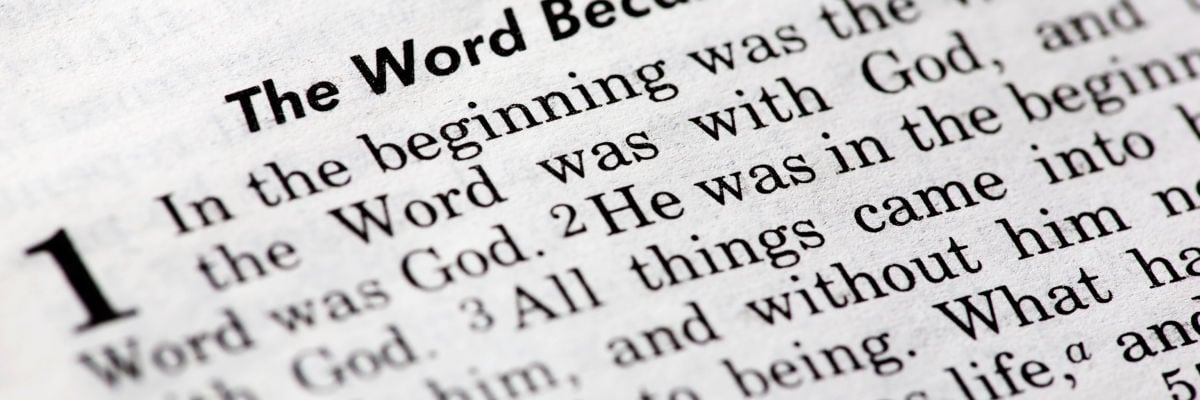
DAY 12
CHALLENGE
“Jesus is not God. John 1:1 shouldn’t be translated ‘the Word was God’ but ‘the Word was a god.’”
DEFENSE
What that Gospel says about Jesus makes this translation impossible.
It is true that Greek lacks the indefinite article (“a,” “an”), and so translators must decide whether to add it in English. However, one cannot simply assert that it should be added in a particular case. One needs proof from the context.
Considered apart from its context, the Greek phrase normally trans- lated “the Word was God” (theos ēn ho logos) could be rendered a number of ways. However, the thing that determines which translations are accurate is the context—what else the Gospel of John has to say that has a bearing on the meaning of this phrase. When this is taken into account, it is clear that any translation of John 1:1 that would reduce the Word to the status of a created being, such as a finite “god” inferior to the true God, is inaccurate. The Gospel of John repeatedly emphasizes the full divinity of Christ.
John is explicit about the matter when he states, “This was why the Jews sought all the more to kill him, because he not only broke the sabbath but also called God his Father, making himself equal with God” (John 5:18).
Similarly, when Jesus is asked how he could have seen Abraham, he replies, “Before Abraham was, I am” (John 8:58), using the same Greek phrase for “I am” (egō eimi) used in the Greek Old Testament when God declares his name to Moses and tells him, “Say this to the people of Israel, ‘I am has sent me to you’” (Exod. 3:14). Jesus’ audi- ence understood that he was claiming to be God, “so they took up stones to throw at him” (John 8:59).
Later Jesus declares, “I and the Father are one” (John 10:30).
And after the Resurrection, Thomas declares him to be, “My Lord and my God!” (John 20:28). This reference is particularly significant, because it serves as the bookend for John 1:1’s statement “the Word was God.” The two declarations frame the Gospel of John’s teaching on Jesus’ divinity.
TIP
For a technical discussion of the grammar of the Greek phrase translated “the Word was God,” see Daniel Wallace, Greek Grammar Beyond the Basics, 255–70.



